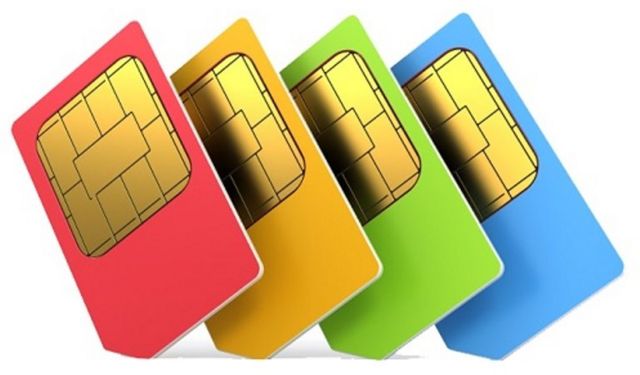
Beware! Be-Safe!
4 EASY WAYS to stay safe online
Recognize & report phishing
Most successful online intrusions result from a recipient of a “phishing” message accidentally downloading malware or giving their personal information to a spammer. Do not click or engage with these phishing attempts. Instead, recognize them by their use of alarming language or offers that are too good to be true.
Report the phish and delete phishing messages.
Use strong passwords
Simple passwords can be guessed. Make passwords at least 16 characters long, random and unique for each account. Use a password manager, a secure program that maintains and creates passwords. This easy-to-use program will store passwords and fill them in automatically on the web.
Turn on multifactor authentication (MFA)
Use MFA on any site that offers it. MFA provides an extra layer of security in addition to a password when logging into accounts and apps, like a face scan or a code sent by text.
Using MFA will make you much less likely to get hacked.
Update software
When devices, apps or software programs (especially antivirus software) notify us that updates are available, we should install them as soon as possible. Updates close security code bugs to better protect our data.
Turn on automatic updates to make it even easier.
We can all help one another
,
Did you know about Cybercrime?
Cybercrime is a criminal activity that targets mobile phone users and computer users to steal money, sensitive information and imposes a threat.
Cybercriminals are Fraudsters and usually target individuals who are unaware of cyber-security, telecom-fraud and cybercriminals.
Fraud will happen by stealing PIN, Account Details and sensitive information from the targeted victim.

Social Engineering

SIM-LOST

Vishing Call
* Don’t share your PIN or your banking password!
* Don’t transfer money to another account on their request!
Statistical Facts

Be Careful of Your Sensetive Information!
Report Immediately!
Report a Fraud Now . . .

Take Part in Protecting Yourself from Cyber-Attacks!

The benefits of applying and maintaining cybersecurity practices include:
- Business protection against cyberattacks and data breaches.
- Protection for data and networks.
- Prevention of unauthorized user access.
- Improved recovery time after a breach.
- Protection for end users and endpoint devices.
- Regulatory compliance.
- Business continuity.
- Improved confidence in the company’s reputation and trust for developers, partners, customers, stakeholders and employees.
Common Cybersecurity Threats & Attacks
Malware: is a form of malicious software in which any file or program can be used to harm a computer user. This includes worms, viruses, Trojans and spyware.
Phishing: is a form of social engineering where fraudulent email or text messages that resemble those from reputable or known sources are sent. Often random attacks, the intent of these messages is to steal sensitive data, such as credit card or login information
Social engineering: is an attack that relies on human interaction to trick users into breaking security procedures to gain sensitive information that is typically protected.
Frequently Asked Questions
We have all heard that having a strong password is important, but what classifies as a strong password?
Strong passwords:
- Should be at least 16 characters long
- Contain and mix letters, symbols, and numbers
- Avoid utilizing words, especially proper nouns
- Never include Personally Identifiable Information (PII)
- Are not re-used
If you are creating secure passwords, it can be difficult to keep track of them all. Using a password management app to store and manage your different passwords can help you keep organized in a secure fashion.
Phishing attacks are a huge part of modern-day cyberattacks – some are highly personalized and may contain references to your coworkers, family members, your hobbies, and more.
The best way to mitigate this is awareness, use the SLAM method to help identify phishing attacks:
- Sender: Check the sender’s email address
- Links: Hover and check any links before clicking
- Attachments: Don’t open attachments from someone you don’t know or attachments that you weren’t expecting
- Message: Check the content of the message and keep an eye out for bad grammar or misspellings
To help prevent attackers taking advantage of vulnerabilities on your smart devices, update phones, tablets, TVs, speakers, thermostats, etc. with the latest software available. If an Auto-Update feature is available, enable it. These devices can potentially be a source of infection just like any other computer.
To further secure your devices, ensure your utilizing screen unlock password capabilities where available. Organizations should also consider mobile device management solutions to help increase the security of their mobile device environment to help ensure device and app compliance and control data flow outside trusted mobile apps and devices.
- Report immediately in person or via 994 that you lost your SIM-Card so that you can avoid any illegal activity to be done using your SIM-Card.
- Dial to 994, 127 or send SMS to 9090 whenever you are suspicious of spam or fraudulent messages.
- Let us know via all ethio telecom social media platforms.
- Make sure that your SIM card has a SIM lock.
- Use strong passwords and keep personal information away from social media.
- Don’t share your PIN, or password.
- Do not share your personal information such as your one-time passcode, My Ethiotel or telebirr App accounts with anyone.
- Do not return a refund for the package mistakenly sent pretending texts/calls whenever you are asked to do so.
- Do not respond for unknown person who requests airtime or telebirr money transfer.
